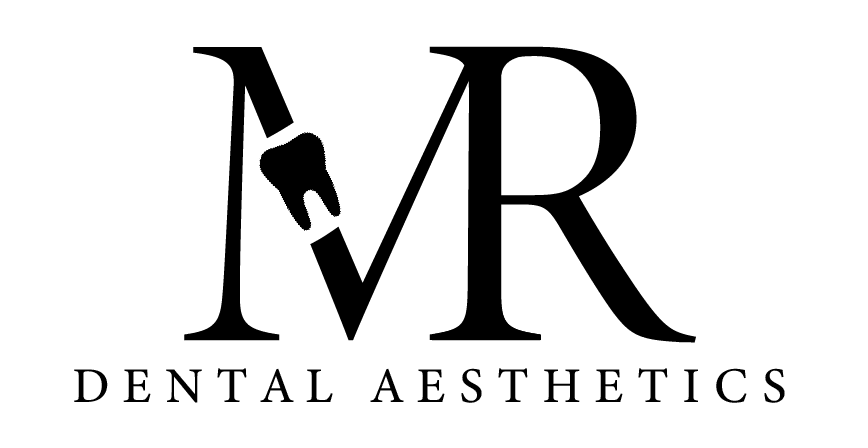If you’re currently awaiting a dental implant procedure, you’re undoubtedly excited at the prospect of replacing your missing teeth and regaining your smile. However, you’re also probably a little concerned about the recovery process after the procedure.
While there are a few things to know about post-dental implant care, there’s really nothing to fear. All you need to do is carefully follow your dental implant aftercare instructions.
Your doctor will give you those instructions following your procedure, but if you’d like a sneak peek at what to expect after a dental implant, take a look at this comprehensive guide for all you need to know.
What to Expect After a Dental Implant
It’s hard to predict precisely how long it will take to receive your dental implant and fully heal from the process, as there are many variables involved.
Generally, you can anticipate your tooth replacement treatment to take six months or longer. The implant must fuse with the jawbone to support the prosthetic tooth, which can be a months-long process.
In terms of the procedure itself, your dental implant should take just an hour or two. The time it takes to recover enough from the procedure to resume your regular activities can vary depending on the nature of the surgery. Still, you should be good in about 2-3 days, provided you carefully follow your dental implant post-op instructions.
Dental Implant Aftercare: What to Do Post-Op
Following your procedure, you should adhere to your doctor’s instructions so your healing can start immediately. That is critical during the first 3-4 days of home care after dental implant surgery. Here is a basic idea of what those days will look like during recovery.
Dental implant aftercare is crucial for ensuring the success and longevity of the procedure. Post-op, you should follow up with your dental professional to monitor healing and implant integration.
Day 1
After the procedure, the most important thing to do is take it easy for the first 24 hours after surgery and follow these instructions:
- Avoid brushing your teeth
- Don’t rinse your mouth
- Do not spit
- Relax and allow your body to begin healing
Day 2
On the second day, continue taking it easy and follow these suggestions:
- Begin brushing your teeth twice a day
- Be extra careful when brushing around the newly placed implant
- Avoid brushing your gums
- Gently rinse your mouth with warm salt water or a prescription solution
- Rinse after eating to prevent food from getting caught in the surgical site
- If you have a non-fixed denture, remove it and clean the inside
Day 3
By the third day, you can start getting back to your routine but stick to these suggestions for oral care:
- Brush twice a day, being careful to avoid the surgical site
- Continue to avoid brushing your gums
- Keep rinsing your mouth with warm salt water or solution, especially after eating
- Make sure to keep your dentures clean if using
Day 4 and On
By now, hopefully, the pain and swelling has subsided, and you can resume a more normal oral care routine following these suggestions:
- You can rinse your mouth with more force
- Start brushing your teeth three times each day
- You can brush more thoroughly, though still be careful around the incision
- Continue this routine for the next six weeks
How to Care for Dental Implants
There are many facets to dental implant aftercare to speed up recovery and ensure long-term success. We’ll cover what you should avoid to prevent infection and other issues affecting the recovery process. Here’s a quick guide to aftercare following dental implants.
Follow Aftercare Instructions
The most important thing to do after you’ve received your dental implants is to follow your dentist’s aftercare instructions to the letter. If you do so, you should have no problem recovering quickly and returning to your everyday life.
Manage Pain and Swelling
The dental implant procedure may come with some discomfort, and there will undoubtedly be some swelling. Fortunately, there are measures you can take to reduce both.
Your doctor will suggest over-the-counter pain medications and possibly even prescriptions, depending on the nature of the procedure. These can help reduce discomfort and, sometimes, inflammation. You can also treat swelling with the help of an ice pack.
Control Bleeding
You should anticipate a little bit of bleeding right after the procedure, along with some red saliva. Your doctor will provide some gauze to manage this issue, but you may find the gauze becomes saturated enough to be ineffective. In that case, you can replace it with fresh gauze. If the excessive bleeding does not let up for an extended period, contact your doctor.
Eating and Drinking
One of the more significant restrictions after dental implant surgery is what you can eat and drink. You must stick with soft foods and warm liquids for the first few days. The less likely food can get stuck in your teeth and gums, the better, which means that a liquid diet can be the safest option after the procedure. However, avoid hot liquids and anything spicy during this time.
Your doctor will make planning your diet more manageable by providing you with a list of dos and don’ts after your procedure. Following this list carefully is crucial, or you may encounter some complications with your recovery.
Smoking and Alcohol
Both smoking and alcohol can cause significant issues with your recovery, so your doctor will recommend that you avoid them after your procedure. While the risks associated with alcohol begin to subside after about three days (and are mainly non-existent after about two weeks), the dangers of smoking while your dental implant heals can last longer than that.
Most doctors will suggest a minimum of two weeks of no smoking after your procedure, but they’ll also tell you that your best bet is to quit altogether. Nicotine restricts blood flow and inhibits bone growth, both of which can lead to implant failure and infection.
Physical Activity
Refraining from significant physical activity for the first few days after receiving your dental implant will be crucial for avoiding issues inhibiting your recovery. You may feel good enough around day three to squeeze in a light workout, but that is not recommended. It’s best to avoid anything that can cause a setback, not to mention discomfort. After four days, you should be okay to resume light exercise and ramp up the following week toward heavier, more strenuous workouts.
Oral Hygiene Routine
The ongoing success of most dental procedures will hinge on your commitment to an excellent oral hygiene routine, and dental implants are no different.
Can I brush my teeth after implant surgery? This is a common question among patients. The immediate answer is no. For the first 24 hours, you’ll need to follow specific instructions, including avoiding brushing around the implant site. Having to forgo your oral hygiene routine may seem uncomfortable, but it’s the best way to heal.
The tenderness you experience following the procedure would make brushing your teeth uncomfortable anyway, and you won’t have to wait all that long to resume. That freshly brushed, clean feeling isn’t worth the risk of disturbing the sensitive tissues around the site of your surgery.
You can resume your oral care routine the day after dental implant surgery. However, you need to take things easy. You’ll want to gently brush and floss, rinse regularly, and avoid irritating the surgical site for the first few days after the procedure.
After the first several days, when your dentist gives you the go-ahead, you can perform the same routine from days two and three but start using more pressure as your mouth heals.
Dental Implant Procedures at MR Dental Aesthetics
Your oral health is associated with many serious systemic diseases, and taking proper care of your mouth can significantly reduce your risk of developing medical conditions later in life. When you receive a dental implant from MR Dental Aesthetics, you also gain comprehensive oral health education to go with your treatment. This ensures you know how to care for your teeth and gums once you leave our office.
Before any cosmetic procedures are discussed, Dr. Rashti will thoroughly assess your oral health and function. As a patient at MR Dental Aesthetics, you will receive personalized, compassionate care tailored especially for you — especially if you experience dental anxiety or phobia. Dr. Rashti treats every patient with individual attention, ensuring respect and privacy.
We are committed to finding solutions that make your visits comfortable and productive. Let us help you secure dental care that not only protects your health but also enhances confidence in your smile.
If you’d like to learn more about dental implants, contact us, and we’ll be happy to answer all your questions. We’re eager to assist you.

